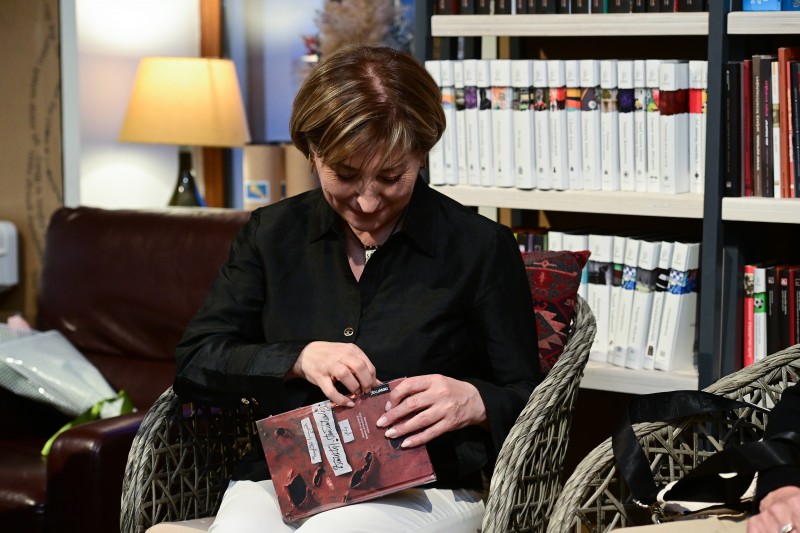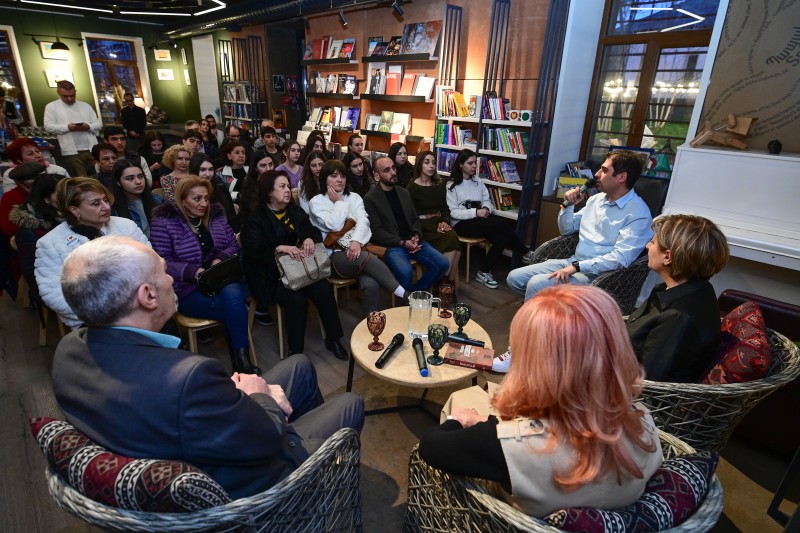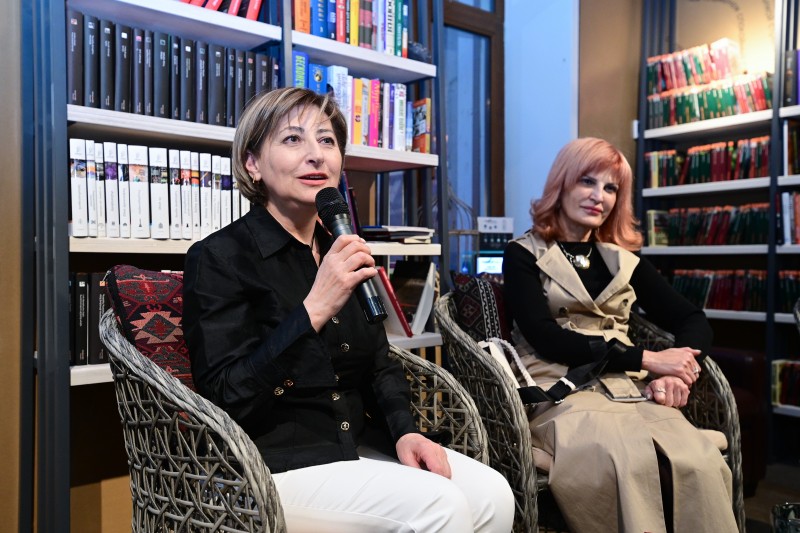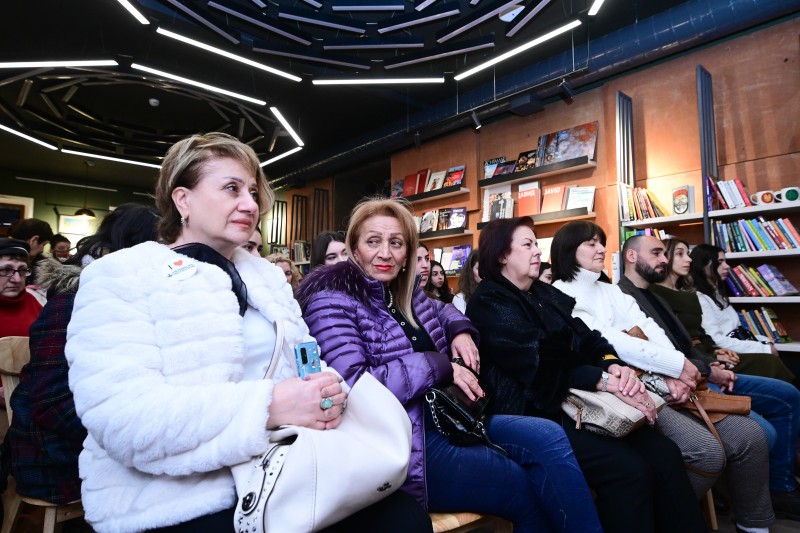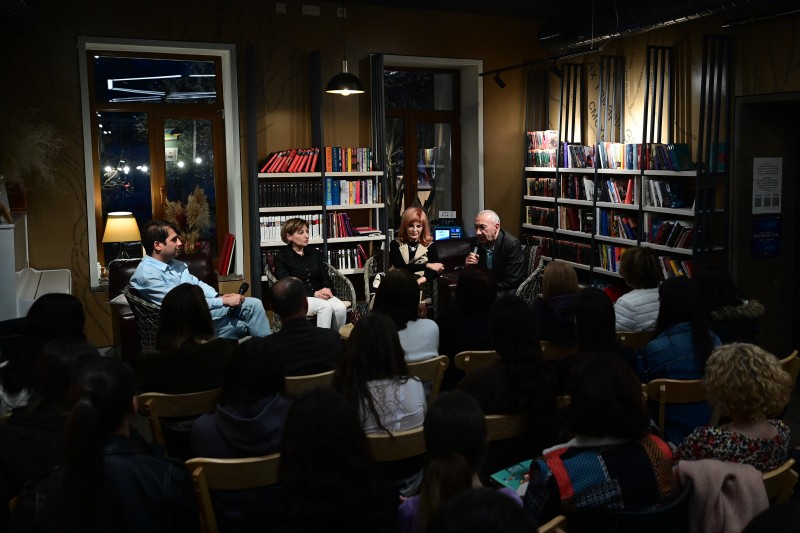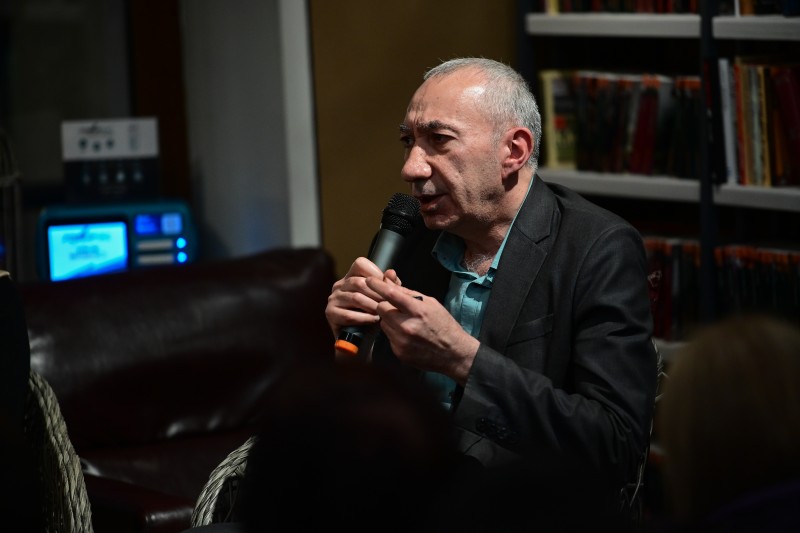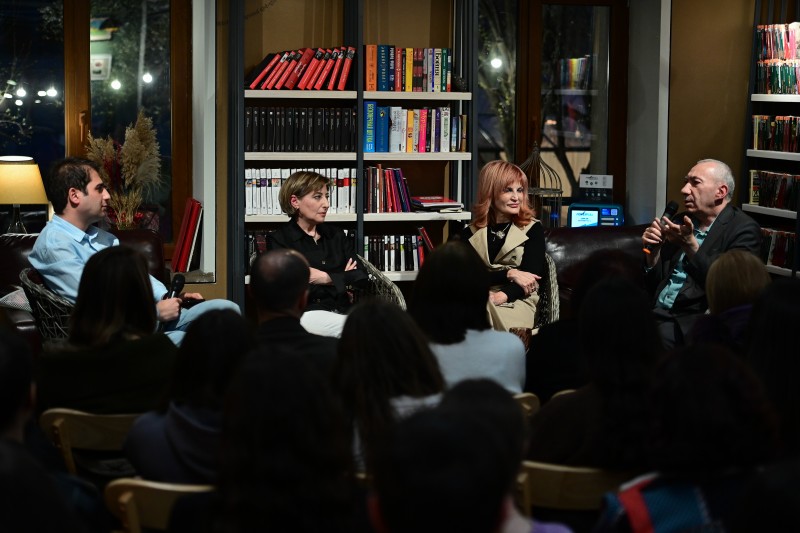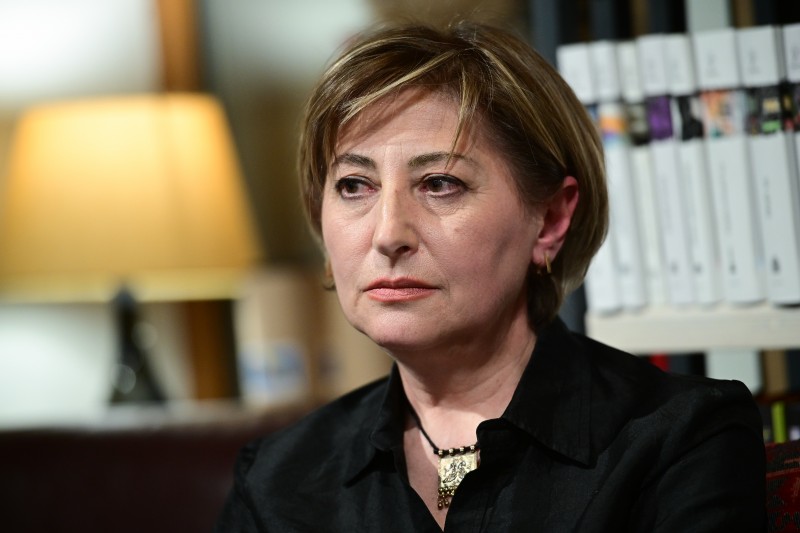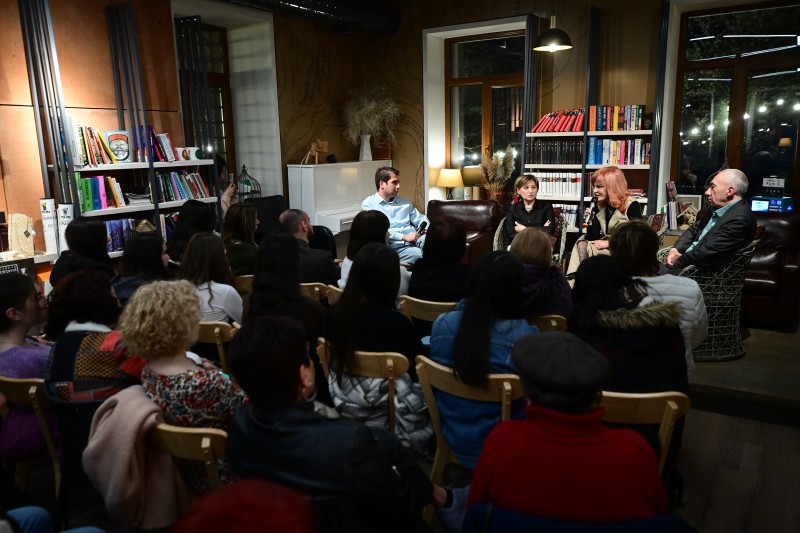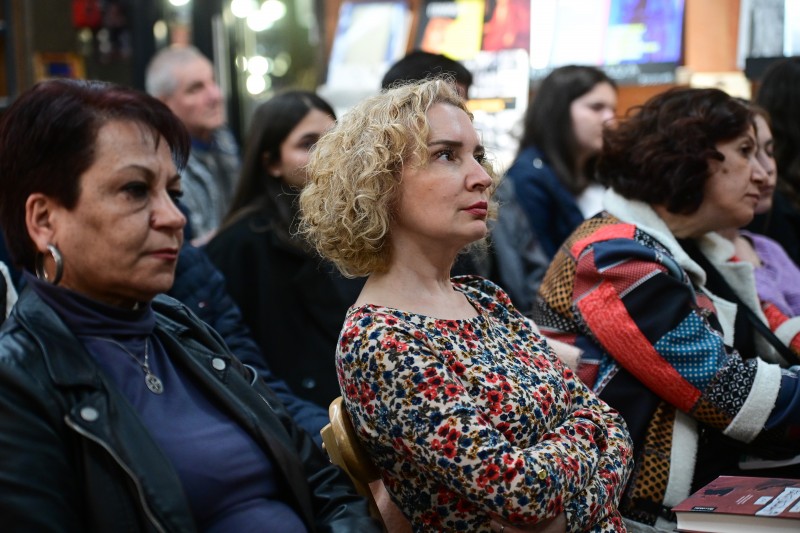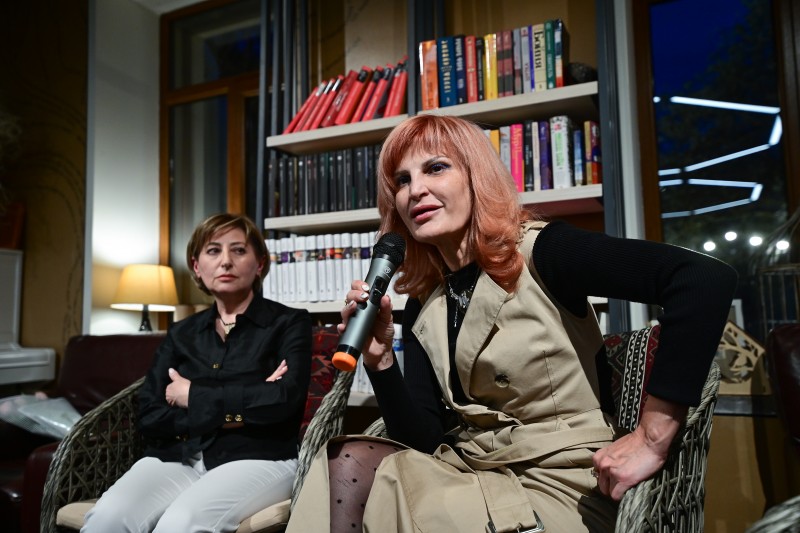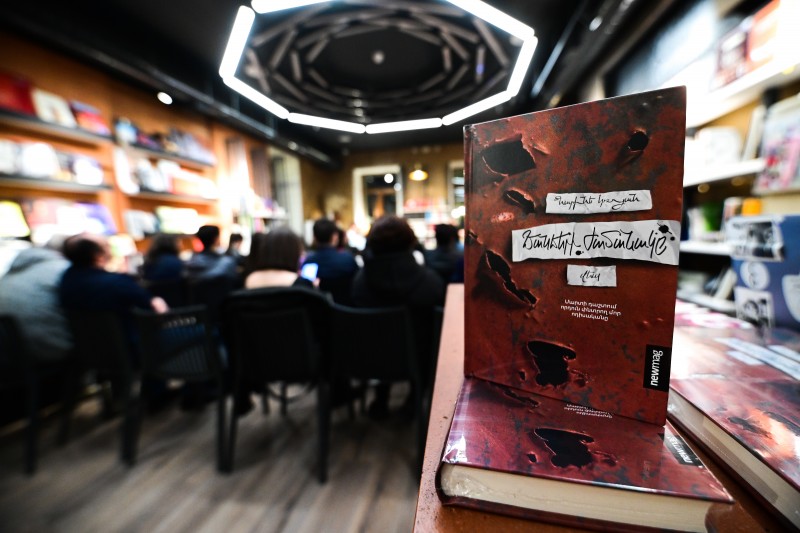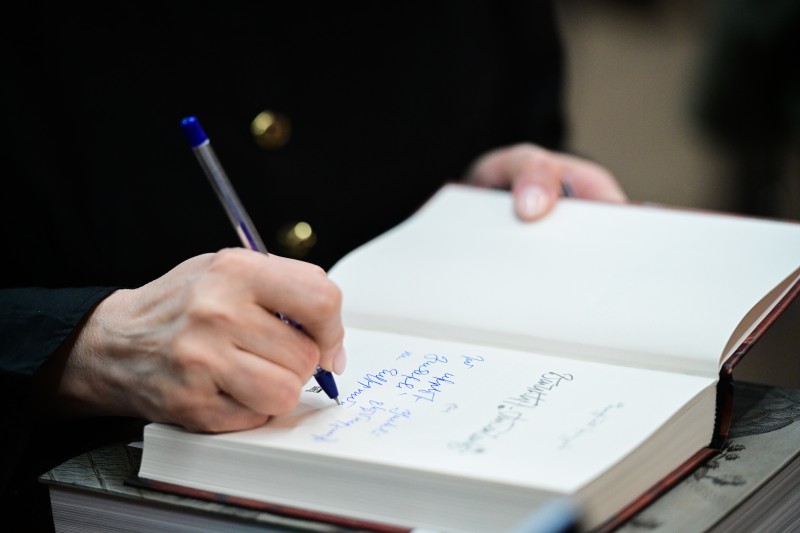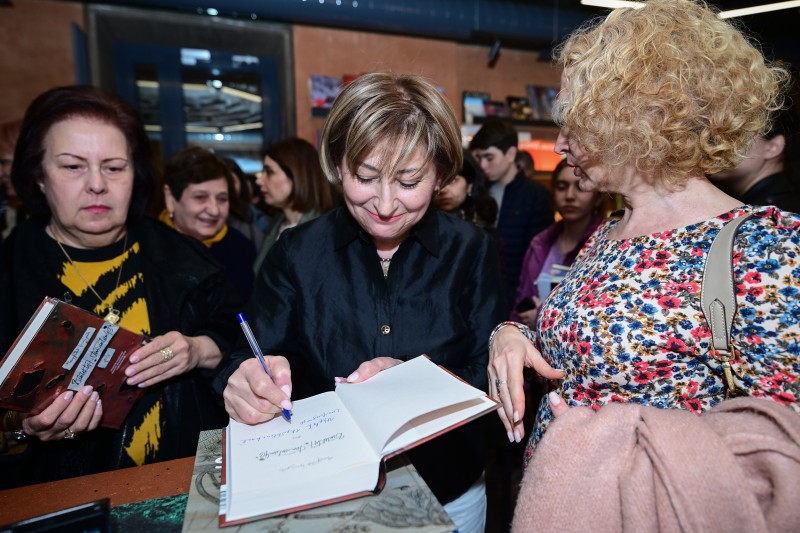The presentation of Narine Kroyan's book "The Time of the Flies" took place (photos)
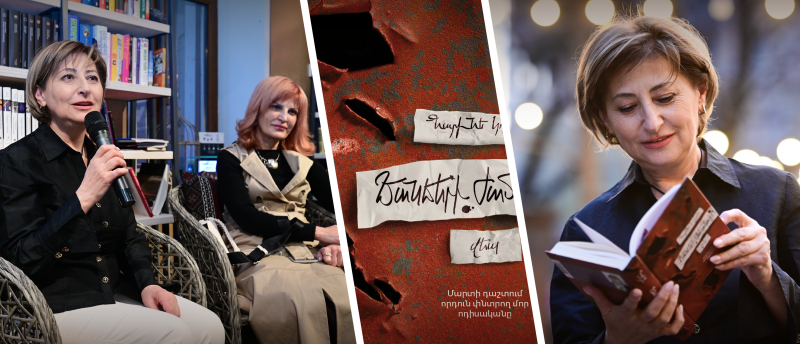
Common Ground bookstore cafe and Newmag publishing house are hosting a series of presentations in honor of Women’s Month. As part of this, the publishing house presents its second novel, "The Time of the Flies" by Narine Kroyan. The "Renaissance" Foundati
In the novel "The Time of the Flies", Narine Kroyan narrates the tale of Sona amid the tumultuous backdrop of the 44-day war. Despite receiving no word from her son, Sona bravely ventures to the front lines. Kroyan highlights that while it's more common for fathers to take such actions, familial bonds transcend gender norms. In emphasizing this point, Kroyan underscores the notion that parental love knows no bounds, constituting both a responsibility and a moral duty regardless of gender.
"After completing my novel, I came to realize that it shares similarities with Tolstoy's work, "The Pathway of Life". Just as in Tolstoy's novel, there's a constant sense of movement throughout mine as well. One particular moment stands out, when all the soldiers in my book become children in the eyes of Sona, the protagonist. This realization prompted me to reflect on the therapeutic aspect of my writing. Perhaps subconsciously, I was grappling with personal burdens, particularly as my son was serving. Writing this book became a way for me to confront and overcome these inner struggles. It's as if I used the act of writing as a tool to extract myself from the weight I carried. Ultimately, I decided to directly confront my inner demons through the pages of this novel."
Narine Kroyan wrote the novel for a long time, talked with the participants of the war, and got to know the military personnel so that there are no inaccuracies in the novel. "In the case of prose, there is a responsibility, you cannot invent, you must be familiar with the material, that's why I studied the weapons of snipers, and I wrote about multiple launch rocket systems. I mostly learned about all that from my father when I was little. He even decided that I should become a pilot and study at the military academy in Ryazan. I wrote the book for a long time, I talked with the participants of the war, and I listened to many interviews. I didn't even change the dates of the events, because the events were still fresh, the blood is still fresh."
Armen Amirkhanyan, the book's editor, emphasizes the significance of this genre of literature in contemporary times. “Umberto Eco stated that life itself is the greatest book, but it should be conveyed in a veritable manner. The foundations of our statehood were also inaccurately laid, lacking clear national and educational ambitions. We should share our truth with the world and assert it upon our neighbors. The novel has a unique style, resembling that of a thriller. This attribute enhances its appeal by introducing constant twists, turns, dialogue, and evolving events, keeping readers engaged and intrigued throughout”.
Professor of literature, Newmag translator Anush Sedrakyan says that it is possible to speak nicely about war only when you have won. According to Sedrakyan, you can only talk about a lost war with tears. "It happened all the time. We currently have two types of trauma, the trauma of immediate loss and the loss of the homeland. I lost my homeland and five cousins. Victory requires conformity”.
Hemingway and Remarque said that war is a trauma, it cannot have anything noble in its process, but there is a moral side of war when you wage your national liberation struggle. We must remember one thing, we all indiscriminately feel the burden of terrible incompetence, it is a part of the post-war trauma, even more so, our children and grandchildren will feel it. We have a collective unconscious: save yourself, run away. Collective consciousness leads a person to war and victory. Consciousness must have a dream, which is also the motherland. Literature should also be about that."
Artak Aleksanyan, founder of Newmag, expressed hope that the book will also be filmed, as it has great potential for a movie script. "This book is about realizing the public wound, overcoming what happened to us. Thanks to Narine for writing this novel. I can imagine how difficult it was to present it to the public. Narine's book, as a prose work, is the first one about the 44-day war. Usually, writers wait for the events to cool down, to pass a little, and then talk about it. But Narine found that strength. I am also grateful to the "Renaissance" Foundation, Artur Janibekyan for becoming the partner of this book."
The participants of the presentation continued their conversations over a glass of wine. This time, the creators of the wine themselves organized a reception of "Khme" wines at the Common Ground bookstore-cafe. "Khme" was founded by two young people from Russia and Artsakh, Dmitri and Davit. They met when Dmitry came to Armenia years ago, he loved Artsakh very much, and they decided to create "Khme" wines together.
Read also

Winterfest to feature David Georgyan’s sci-fi action novel Impedance (trailer)

At Winterfest 2026, Newmag will present Marianna Hakobyan’s “Don’t Change the Names” (trailer)

Closing and Award Ceremony of the “Sprout in Armenian – 2025” Competition at Newmag Winterfest

“I hope my story will inspire many and help them keep believing and dreaming.” Henrikh Mkhitaryan’s welcoming speech to Armenian fans (video)


